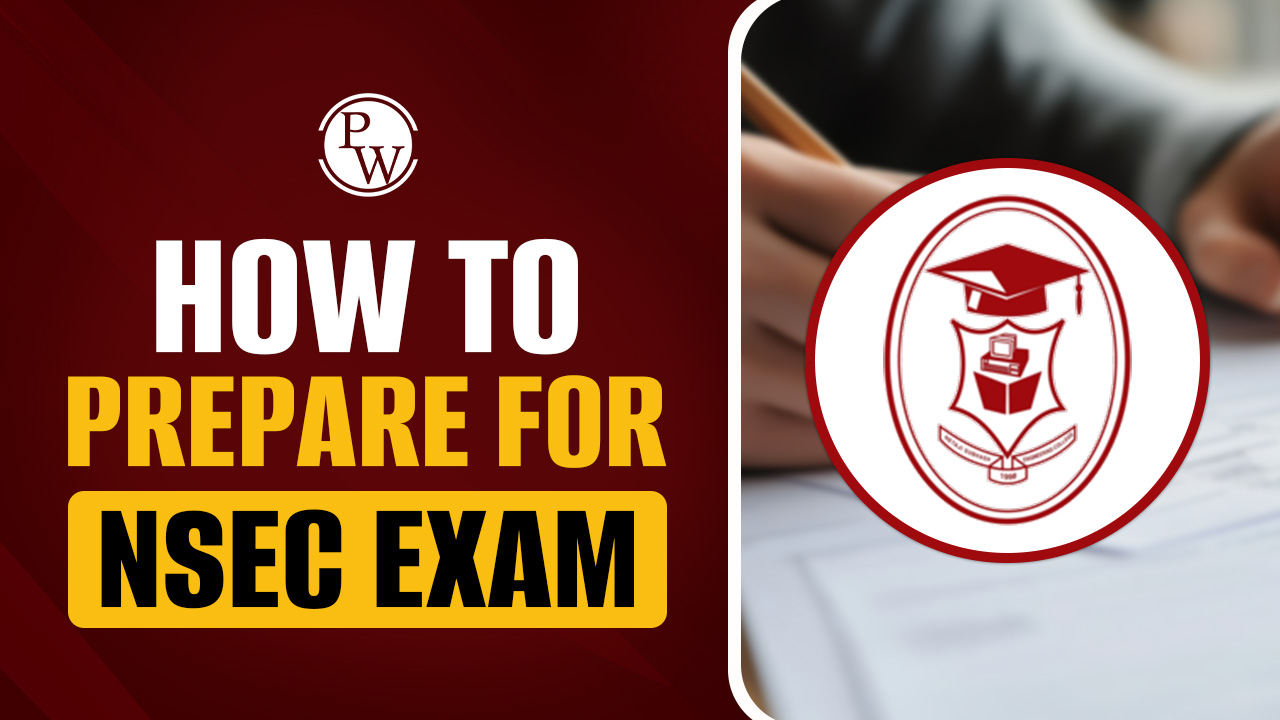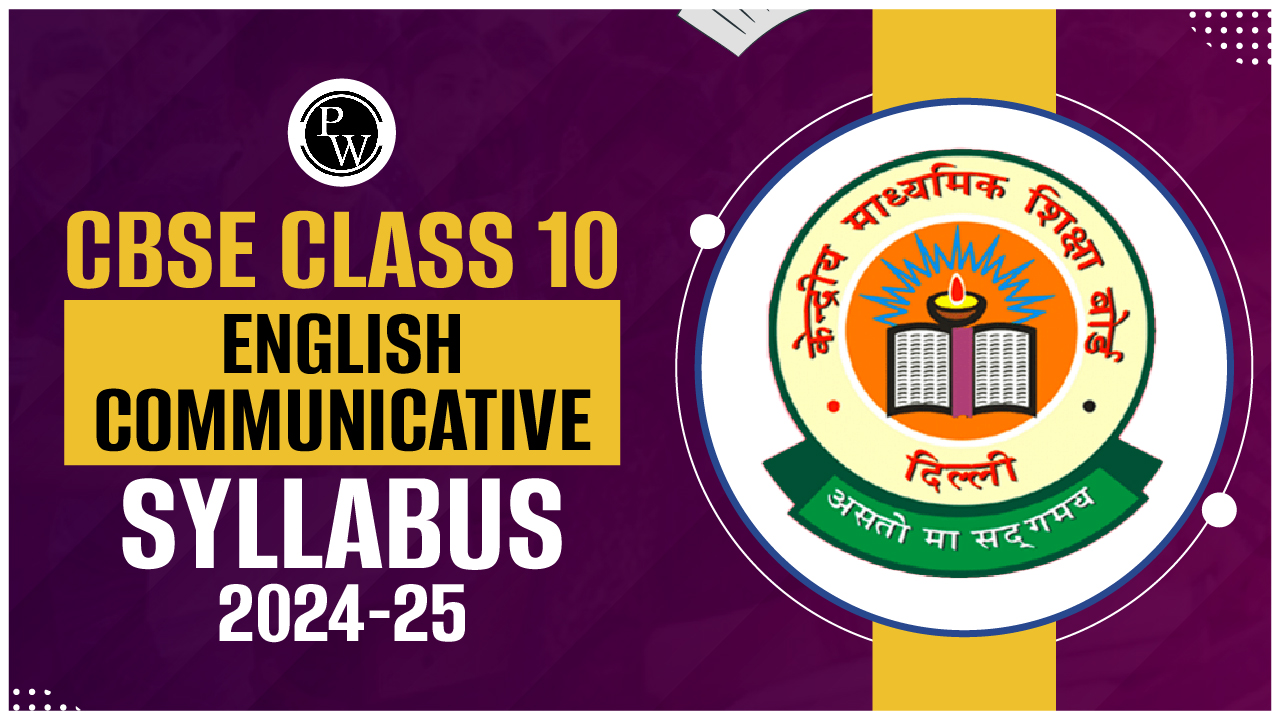How to Prepare for NSEC Exam?

As your chemistry skills improve, consider taking the NSEC exam, as it is a crucial first step for participating in larger national chemistry competitions in India. The NSEC full form is National Standard Examination in Chemistry acts as India’s pathway to the International Chemistry Olympiad (IChO). This test is created to assess conceptual mastery and problem-solving skills in chemistry. This Olympiad exam sets a strategic approach rooted in foundational knowledge, regular practice, and familiarity with advanced topics. To help you prepare effectively for this process, we have prepared a detailed explanation that includes insights from academic resources, past qualifying exams, and institutional guidelines.
NSEC Syllabus and Pattern
Before you start preparing, it is important to know what to study.
Topics Covered:
-
Physical Chemistry
-
Organic Chemistry
-
Inorganic Chemistry
The NSEC syllabus is based mostly on the NCERT books of classes 11 and 12.
Exam Pattern:
-
80 multiple-choice questions (MCQs)
-
Time: 2 hours
-
Negative marking is present
-
Questions are concept-based and tricky
This means you have less than two minutes per question, so speed and accuracy are both important. The exam focuses on understanding concepts rather than just remembering facts. The test uses negative marking, which means wrong answers reduce your total score. This makes it important to answer only when you're confident about the choice.
Complete NSEC Syllabus
The NSEC syllabus covers chemistry topics from classes 11 and 12. These topics are divided into three main areas that you need to master.
Physical Chemistry Topics
Physical chemistry deals with how and why chemical reactions happen. Key topics include:
-
Structure of atoms and how electrons move around the nucleus. This includes understanding atomic orbitals and electron configurations.
-
Chemical bonding between atoms to form molecules. You need to know about ionic bonds, covalent bonds, and metallic bonds.
-
States of matter like solids, liquids, and gases. Learn about phase changes and the kinetic theory of gases.
-
Thermodynamics, which studies energy changes in chemical reactions. This includes concepts like enthalpy, entropy, and Gibbs free energy.
-
Chemical equilibrium and how reactions reach balance. Le Chatelier's principle is very important here.
-
Electrochemistry, which covers how chemical reactions can produce electricity. This includes topics like galvanic cells and electrolysis.
-
Chemical kinetics, which studies how fast reactions happen. You need to understand rate laws and reaction mechanisms.
Check Out: IOQM Olympiads Mathematics Comprehensive Guide For 2025 Exam
Inorganic Chemistry Topics
Inorganic chemistry focuses on elements and compounds that don't contain carbon. Important areas include:
-
Periodic table trends and how element properties change across periods and groups.
-
Hydrogen and its special properties as the simplest element.
-
S-block elements like sodium, potassium, calcium, and magnesium. Learn their reactions and compounds.
-
P-block elements, including halogens, noble gases, and carbon family elements.
-
D-block elements, which are transition metals. These have unique properties because of their electron configurations.
-
F-block elements, which are rare earth metals.
-
Coordination compounds and how metal atoms bond with other groups.
-
Environmental chemistry and how chemical processes affect our world.
Organic Chemistry Topics
Organic chemistry studies carbon-containing compounds. Key topics include:
-
Basic principles of organic chemistry and how to name compounds.
-
Hydrocarbons like alkanes, alkenes, and alkynes. Learn their structures and reactions.
-
Organic compounds containing oxygen, such as alcohols, ethers, aldehydes, and ketones.
-
Organic compounds containing nitrogen, including amines and amides.
-
Biomolecules like proteins, carbohydrates, and fats that are found in living things.
-
Polymers and how small molecules join together to form large chains.
-
Reaction mechanisms that show step-by-step how organic reactions occur.
-
show step-by-step how organic reactions occur.
Check Out: NSEP Class 11 Advanced Physics For JEE & Olympiad 2025
Building Strong Foundations with NCERT Books
NCERT textbooks are the most important resources for NSEC Olympiad preparation. These books explain concepts clearly and include many solved examples. Here's how to use them effectively:
Reading Strategy
-
Don't just read through the chapters quickly. Take time to understand each concept completely. When you read about chemical bonding, for example, make sure you understand why atoms form bonds and how different types of bonds affect molecule properties.
-
Make notes while reading. Write down important definitions, formulas, and key points in your own words. This helps you remember better and creates a useful review resource.
Solving NCERT Problems
-
Every NCERT chapter has questions at the end. These problems are designed to test your understanding of the concepts. Solve all of them, even if they seem easy. These questions often form the basis for harder olympiad exam questions.
-
If you get stuck on a problem, don't look at the answer immediately. Try different approaches and think about which concepts might help. This builds problem-solving skills that are crucial for the what is nsec exam success.
Creating Summary Sheets
-
After finishing each chapter, create a one-page summary. Include the most important points, formulas, and any tricks you learned. These sheets are perfect for quick review before mock tests.
NSEC Study Resources and Techniques
Once you have mastered NCERT concepts, it's time to move to more advanced materials. These resources will help you tackle the harder questions that appear in the NSEC exam.
Recommended Reference Books
Specialized NSEC preparation books for Olympiad NSEC Class 11 Advanced Chemistry (Part 1) for Class 11 and Olympiad NSEC Class 12 Advanced Chemistry (Part 1) for Class 12 Olympiad students offer targeted practice problems and exam-specific strategies.
Understanding Complex Topics
-
Some topics in chemistry are naturally more difficult. Molecular orbital theory, for example, requires good visualization skills. If you struggle with these topics, try using online videos or animations that show how these concepts work.
-
Practice drawing and interpreting diagrams. Many NSEC syllabus questions include graphs, molecular structures, or reaction schemes that you need to analyze.
Integration of Concepts
-
The NSEC exam often tests how well you can connect different chemistry topics. For example, a question might ask you to use thermodynamics to predict whether a reaction will happen, then use kinetics to determine how fast it will occur.
-
Practice with problems that combine multiple topics. This builds the kind of thinking you need for the Olympiad exam.
Effective Study Schedule and Time Management
Creating a good study plan is essential for nsec exam success. Your schedule should balance theory learning, problem solving, and regular review.
Daily Study Routine
Spend at least three hours daily on chemistry preparation. Break this time into focused sessions:
-
Start with a theory reading for about one hour. Focus on understanding concepts rather than memorizing facts.
-
Spend one hour solving problems from the NCERT and reference books. Start with easier problems and gradually increase difficulty.
-
Use the remaining time for reviewing previous topics and making notes.
-
Take short breaks between study sessions to maintain concentration.
Weekly Planning
Plan each week to cover specific topics. For example:
-
Week 1: Complete the atomic structure and chemical bonding
-
Week 2: Finish the states of matter and thermodynamics
-
Week 3: Study chemical equilibrium and electrochemistry
This approach covers all NSEC syllabus topics systematically.
Read More: How to Apply for Olympiad Exams 2025-26
Monthly Assessment
At the end of each month, take a full-length practice test. This helps you understand your progress and identify areas that need more work. Review your performance carefully. Note which topics you're strong in and which ones need more attention. Adjust your study plan accordingly.
Mock Tests and Previous Year Papers
Regular practice with mock tests is one of the best ways to prepare for the NSEC Olympiad. These tests help you get familiar with the exam format and improve your time management skills.
Finding Quality Mock Tests
Look for mock tests that follow the same pattern as the actual NSEC exam. They should have 80 questions covering all three chemistry areas and include negative marking. Many online platforms like PW offer free mock tests. Some coaching institutes also provide practice papers specifically designed for the what is nsec exam preparation.
Analyzing Your Performance
After each mock test, spend time analyzing your results. Look at more than just your total score:
-
Check which topics you performed well in and which ones caused problems.
-
Identify whether you made careless mistakes or conceptual errors.
-
Note if you had time management issues or if you could finish all questions.
-
Keep a record of your scores over time. This helps you see if you're improving consistently.
Learning from Mistakes
Every wrong answer is a learning opportunity. When you get a question wrong, don't just check the correct answer.
-
Try to understand why you made the mistake and how to avoid it in the future.
-
Make a list of common mistakes you tend to make.
-
Review this list regularly to avoid repeating the same errors.
-
Do not forget to prioritize your school studies as well.
Problem-Solving Strategies
The NSEC exam tests your ability to solve chemistry problems efficiently. Developing good problem-solving techniques is crucial for success.
Breaking Down Complex Questions
Many olympiad exam questions combine multiple concepts. When you see such questions, break them down into smaller parts:
-
Identify what the question is asking for.
-
List all the given information.
-
Determine which chemistry concepts are relevant.
-
Solve step by step, checking each calculation.
Preparing for the NSEC exam requires dedication, proper planning, and consistent effort. Start with building strong foundations using NCERT textbooks, then advance to more challenging materials and practice problems. Create a structured study schedule that covers all topics in the NSEC syllabus. Practice regularly with mock tests and previous year papers to build speed and accuracy. Remember that the what is NSEC exam tests conceptual understanding rather than memorization. Focus on truly understanding how chemistry concepts work and how they connect to each other.
Also Read, What is Olympiad Exam?
NSEC Exam FAQs
1. What is the nsec full form, and what does it test?
The nsec full form is National Standard Examination in Chemistry. This olympiad exam tests students' understanding of chemistry concepts from classes 11 and 12, covering physical, inorganic, and organic chemistry topics.
2. What is the NSEC syllabus based on?
The NSEC syllabus is based on the CBSE curriculum for classes 11 and 12. It covers all major chemistry topics, including atomic structure, chemical bonding, thermodynamics, organic reactions, and periodic properties.
3. When should I start preparing for the what is nsec exam?
You should start preparing at least 6 months before the exam date. This gives you enough time to cover all topics thoroughly, practice extensively, and build strong conceptual understanding.
4. How can I improve my speed for the Olympiad exam?
Practice regularly with timed mock tests. Solve previous year papers within the 2-hour limit. Focus on understanding concepts well so you can solve problems quickly during the actual exam.











